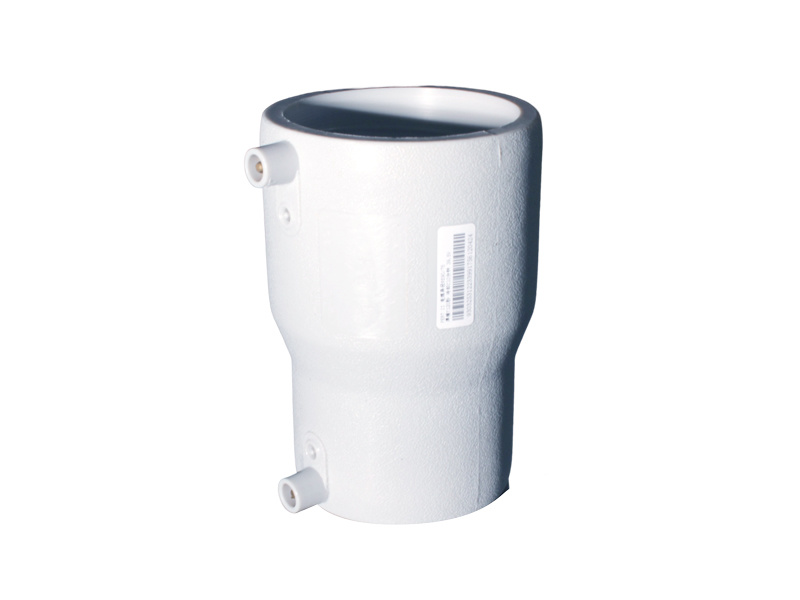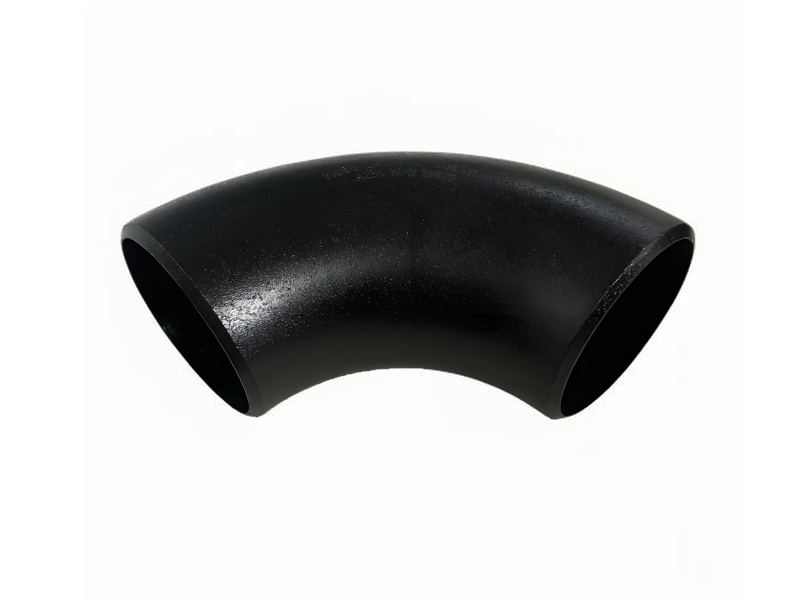-
Concentric Reducers: A Key Component for Reliable Pipe Connections
Date:
20 Sep,2025
Concentric Reducers: A Key Component for Reliable Pipe Connections In the world of piping systems, the significance of reliable connections cannot be overstated. Among the various fittings that enable seamless flow transition, **concentric reducers** have emerged as a crucial component. These fittings are designed to facilitate smooth transitions between different pipe diameters, ensuring effici
Concentric Reducers: A Key Component for Reliable Pipe Connections
In the world of piping systems, the significance of reliable connections cannot be overstated. Among the various fittings that enable seamless flow transition, **concentric reducers** have emerged as a crucial component. These fittings are designed to facilitate smooth transitions between different pipe diameters, ensuring efficiency and reliability in fluid transport. In this comprehensive guide, we will delve into concentric reducers, exploring their types, applications, benefits, and much more.
Table of Contents
- Understanding Concentric Reducers
- Types of Concentric Reducers
- Applications of Concentric Reducers
- Advantages of Using Concentric Reducers
- Installation and Maintenance
- Material Considerations for Concentric Reducers
- Cost-Effectiveness of Concentric Reducers
- FAQs About Concentric Reducers
- Conclusion
Understanding Concentric Reducers
Concentric reducers are pipe fittings that allow the transition from one pipe diameter to another. They are **characterized by their symmetrical shape**, where both ends of the fitting are aligned on the same axis. This design enables a smooth and gradual reduction in pipe size, minimizing turbulence and ensuring efficient fluid flow. Concentric reducers play a vital role in various systems, including water supply, oil and gas, and industrial processes.
How Concentric Reducers Work
The functionality of concentric reducers lies in their ability to maintain consistent flow dynamics. When fluid passes through a concentric reducer, the gradual change in diameter helps to reduce pressure loss and prevent cavitation. This is particularly important in systems that rely on precise flow rates, such as chemical processing plants and HVAC systems.
Types of Concentric Reducers
Concentric reducers come in various types, each designed to cater to specific requirements. Understanding the different types can help you choose the right fitting for your piping system.
1. Standard Concentric Reducers
These are the most commonly used concentric reducers, typically manufactured from materials like stainless steel, carbon steel, or PVC. They are available in various sizes and are suitable for a wide range of applications.
2. Custom Concentric Reducers
For unique piping requirements, custom concentric reducers can be produced. These fittings are tailored to meet specific size, shape, and material needs, ensuring optimal performance in specialized applications.
3. Flanged and Welded Concentric Reducers
Flanged concentric reducers feature flanges on both ends, allowing for easy connection to other flanged components. Welded concentric reducers, on the other hand, are designed for permanent installations and provide a robust and leak-proof connection.
Applications of Concentric Reducers
Concentric reducers are utilized in a myriad of applications across various industries. Their versatility and reliability make them indispensable in several contexts.
1. Water Treatment Systems
In water treatment facilities, concentric reducers facilitate the transition between different pipe sizes, ensuring efficient flow rates and minimizing pressure drops. They are vital for maintaining the integrity of the entire system.
2. Oil and Gas Industry
In the oil and gas sector, concentric reducers are employed for fluid transport, helping to maintain pressure and flow consistency in pipelines. Their robust construction ensures they can withstand harsh environmental conditions.
3. Chemical Processing
Concentric reducers are essential in chemical processing plants, where precise flow control is required. They help minimize turbulence, ensuring that chemical reactions occur efficiently and safely.
Advantages of Using Concentric Reducers
Choosing concentric reducers for your piping system comes with numerous benefits. Here are some of the most compelling advantages:
1. Improved Flow Efficiency
The symmetrical design of concentric reducers allows for smoother transitions, reducing turbulence and improving overall flow efficiency. This is crucial in applications where maintaining consistent flow rates is essential.
2. Versatility
Concentric reducers can be used in a wide range of applications, from residential plumbing to large-scale industrial projects. Their adaptability makes them a go-to choice for engineers and contractors alike.
3. Reduced Pressure Loss
By facilitating gradual transitions between pipe sizes, concentric reducers help minimize pressure loss throughout the system. This can lead to significant energy savings and improved system performance.
Installation and Maintenance
Proper installation and maintenance of concentric reducers are vital for ensuring their longevity and performance. When installing these fittings, consider the following best practices:
1. Correct Alignment
Ensure that the concentric reducer is properly aligned with the connecting pipes. Misalignment can lead to leaks and reduced efficiency.
2. Use Appropriate Sealants
When connecting concentric reducers, use appropriate sealants or gaskets to prevent leaks. This is particularly important in high-pressure systems.
3. Regular Inspections
Conduct regular inspections of your piping system to identify any signs of wear or damage. Proactive maintenance can help extend the life of your concentric reducers and maintain system efficiency.
Material Considerations for Concentric Reducers
The choice of material for concentric reducers is critical, as it affects durability, compatibility, and overall performance. Common materials include:
1. Stainless Steel
Known for its corrosion resistance and strength, stainless steel is ideal for applications involving harsh chemicals or extreme temperatures.
2. Carbon Steel
Carbon steel is a cost-effective option for many general-purpose applications, offering a good balance of strength and durability.
3. PVC
PVC concentric reducers are lightweight and resistant to corrosion, making them suitable for water systems and applications involving non-aggressive fluids.
Cost-Effectiveness of Concentric Reducers
When evaluating the cost-effectiveness of concentric reducers, consider both initial investment and long-term savings. While high-quality fittings may come with a higher upfront cost, their durability and efficiency can lead to significant savings in maintenance and energy costs over time.
FAQs About Concentric Reducers
1. What is the primary function of a concentric reducer?
The primary function of a concentric reducer is to provide a smooth transition between different pipe diameters, facilitating efficient fluid flow.
2. Can concentric reducers be used in high-pressure systems?
Yes, concentric reducers can be used in high-pressure systems, provided they are made from suitable materials and properly installed.
3. What materials are commonly used for concentric reducers?
Common materials for concentric reducers include stainless steel, carbon steel, and PVC, each chosen based on specific application requirements.
4. How do I choose the right size concentric reducer?
To choose the right size concentric reducer, consider the diameters of the pipes being connected and the flow requirements of your system.
5. What maintenance is required for concentric reducers?
Regular inspections for wear and leaks, along with proper alignment during installation, are essential for maintaining the performance of concentric reducers.
Conclusion
Concentric reducers are indispensable components in various piping systems, offering reliable and efficient transitions between different pipe sizes. Their unique design minimizes turbulence and pressure loss, making them ideal for a wide range of applications across industries. By understanding the types, advantages, and best practices for installation and maintenance, professionals can ensure optimal performance and longevity of these essential fittings. With the right choice of materials and careful consideration of application needs, concentric reducers can significantly enhance the efficiency and reliability of any piping system.
Related News
21 Sep,2025
Understanding Steel Concentric Reducers: Essential Components for Efficient Piping Systems
Steel concentric reducers are essential components in various piping systems, particularly in the construction and decorative materials industry. They serve a critical function in connecting pipes of different diameters, allowing for a smooth transition of fluids or gases from a larger pipe to a smaller one. This seamless transition helps to maintain the flow efficiency and reduce turbulence, whic
20 Sep,2025
Concentric Reducers: A Key Component for Reliable Pipe Connections
Concentric Reducers: A Key Component for Reliable Pipe Connections In the world of piping systems, the significance of reliable connections cannot be overstated. Among the various fittings that enable seamless flow transition, **concentric reducers** have emerged as a crucial component. These fittings are designed to facilitate smooth transitions between different pipe diameters, ensuring effici
19 Sep,2025
Understanding Butt Weld Elbows: Essential Components in Construction and Decoration
In the realm of construction and decorative materials, butt weld elbows stand out as crucial components, particularly in piping systems. These fittings are designed to connect two pipes at a specific angle, typically 90 or 45 degrees, allowing for seamless directional changes in the pipe layout. The term "butt weld" refers to the method of joining the pipes—where the ends of the pipes are aligned
Contact information
Address: North Ring Industrial Zone, Mengcun County
Telephone: 86 0317- 6729218 86 0317-6727320
Fax: 0317-6727310
mobile phone: 86 13833761688whatsapp: 86-13780271039
Email: shengyuanflange@163.comLeave Message










